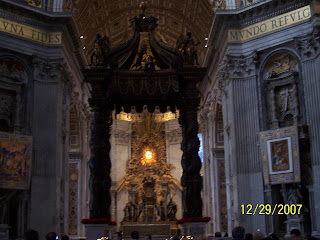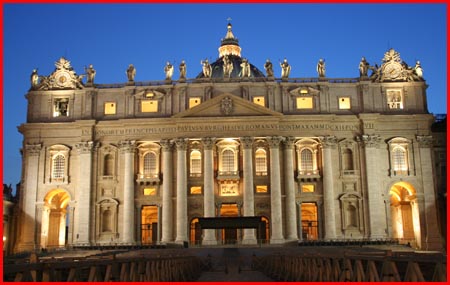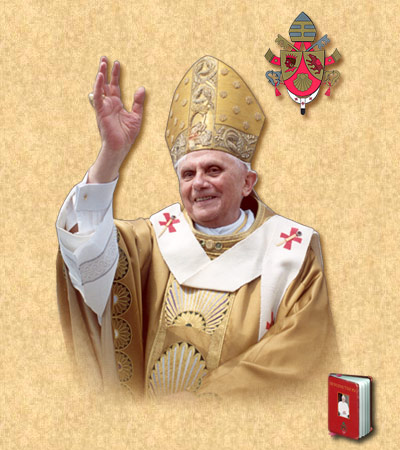On Saturday evening I had the privilege of becoming the Godfather of another of my nephews. This is not the first time. It likely won't be the last. Nevertheless, the sense of joy that accompanied the celebration of the sacrament was the same last night as it was when I first began to understand the sacrament.
Augustin (Gus) became a member of the Church last night. He was cleansed of his original sin. He was given the gifts of faith, hope, and charity. He was made an adopted son of God and a sibling of Jesus himself. He was made a new creation. He has died with Christ and been born to new life in him. He has "put on Christ." We know these things, and we believe these things about baptism. And yet, it seems so odd to look at the child after the water has been poured on his head and realize that he is now different, changed, recreated.
This is the nature of the sacraments. Simple, ordinary, unassuming elements from our ordinary lives are used by God to effect real change in our lives. We don't see the change, but we believe that it has occurred.
So, Gus is now a changed person. He, as a result of his baptism, is now more closely related to me than he was the day he was born. His biological family rejoices in this moment in his life. His other family, the Church, rejoices at the birth of a new member.





 The response to him was pretty much, “Please! In 1800 years we haven't been able to destroy it ourselves! I doubt you can.” How true. Despite all the sinfulness of the members of the Church and all the attacks against it, the Church perdures—God has bound Himself inalienably and inextricably to the Catholic Church, guided and shepherded by the Roman Pontiff and the bishops in communion with him, and thanks be to God for that.
The response to him was pretty much, “Please! In 1800 years we haven't been able to destroy it ourselves! I doubt you can.” How true. Despite all the sinfulness of the members of the Church and all the attacks against it, the Church perdures—God has bound Himself inalienably and inextricably to the Catholic Church, guided and shepherded by the Roman Pontiff and the bishops in communion with him, and thanks be to God for that.






 The seminary is great!
The seminary is great!
























